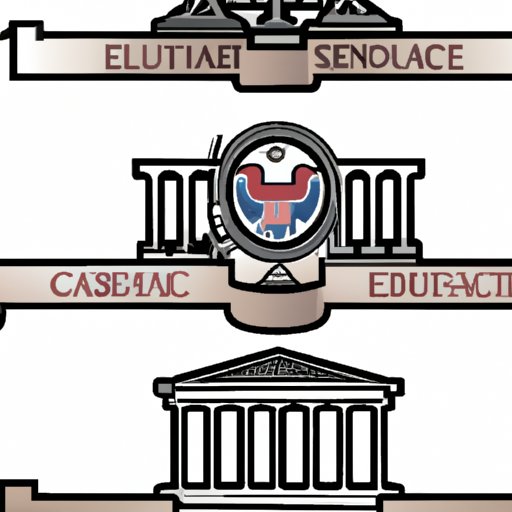Introduction
The government is responsible for creating and enforcing laws that protect citizens and ensure justice. In the United States, there are three branches of government: executive, legislative, and judicial. Each branch has its own responsibilities and powers that work together to create a balanced system of checks and balances. This article will provide an overview of how the government works and the roles of each branch.
Role of the President in Government
The president is the head of the executive branch of the government. The president has the authority to make executive orders and appoint officials to positions in the government. The president is also responsible for enforcing the laws of the United States. The president can veto bills passed by Congress and also has the power to pardon individuals convicted of crimes.
The president also has an important role in making and executing laws. The president is responsible for proposing legislation to Congress and signing laws into effect. The president can also suggest changes to existing laws and regulations.

Structure and Responsibilities of Congress
Congress is the legislative branch of the government. It is composed of two houses: the Senate and the House of Representatives. Each state is represented in Congress by two senators and a number of representatives based on population. Congress is responsible for making laws and appropriating funds for the government.
Congress has several powers, including the power to pass or reject bills, declare war, and regulate interstate commerce. Congress must pass any bill before it can become law. If the president vetoes a bill, Congress can override the veto with a two-thirds majority vote.
Congress also has the power to impeach the president and other government officials. Impeachment is the process of charging someone with a crime and removing them from office. Impeachment is rare and only used in cases of severe misconduct.

How Laws are Enacted and Implemented
Once a bill is passed by Congress, it is sent to the president for signing. If the president approves of the bill, he or she will sign it into law. If the president does not approve of the bill, he or she can veto it. In this case, Congress can override the veto with a two-thirds majority vote.
The Supreme Court has the power to review laws and determine if they are constitutional. If the Supreme Court finds a law to be unconstitutional, it can strike it down. The executive branch is responsible for enforcing laws. The president appoints people to government agencies and departments to ensure that laws are being followed.

Impact of Federalism on Government Functioning
Federalism is a form of government in which power is shared between the national and state governments. Under federalism, both levels of government have their own responsibilities and powers. The national government has the power to regulate foreign affairs and interstate commerce, while the state governments have the power to create and enforce laws within their borders.
Local governments, such as counties and cities, also play an important role in government functioning. Local governments have the power to pass ordinances and levy taxes. They also provide essential services, such as public safety, sanitation, and education.
Conclusion
Understanding how the government works is essential for citizens to participate in the political process. The three branches of government—executive, legislative, and judicial—have distinct roles and responsibilities. The process for making and enforcing laws involves the president, Congress, and the Supreme Court. Federalism ensures that power is shared between the national and state governments, and local governments provide essential services to citizens.
(Note: Is this article not meeting your expectations? Do you have knowledge or insights to share? Unlock new opportunities and expand your reach by joining our authors team. Click Registration to join us and share your expertise with our readers.)
